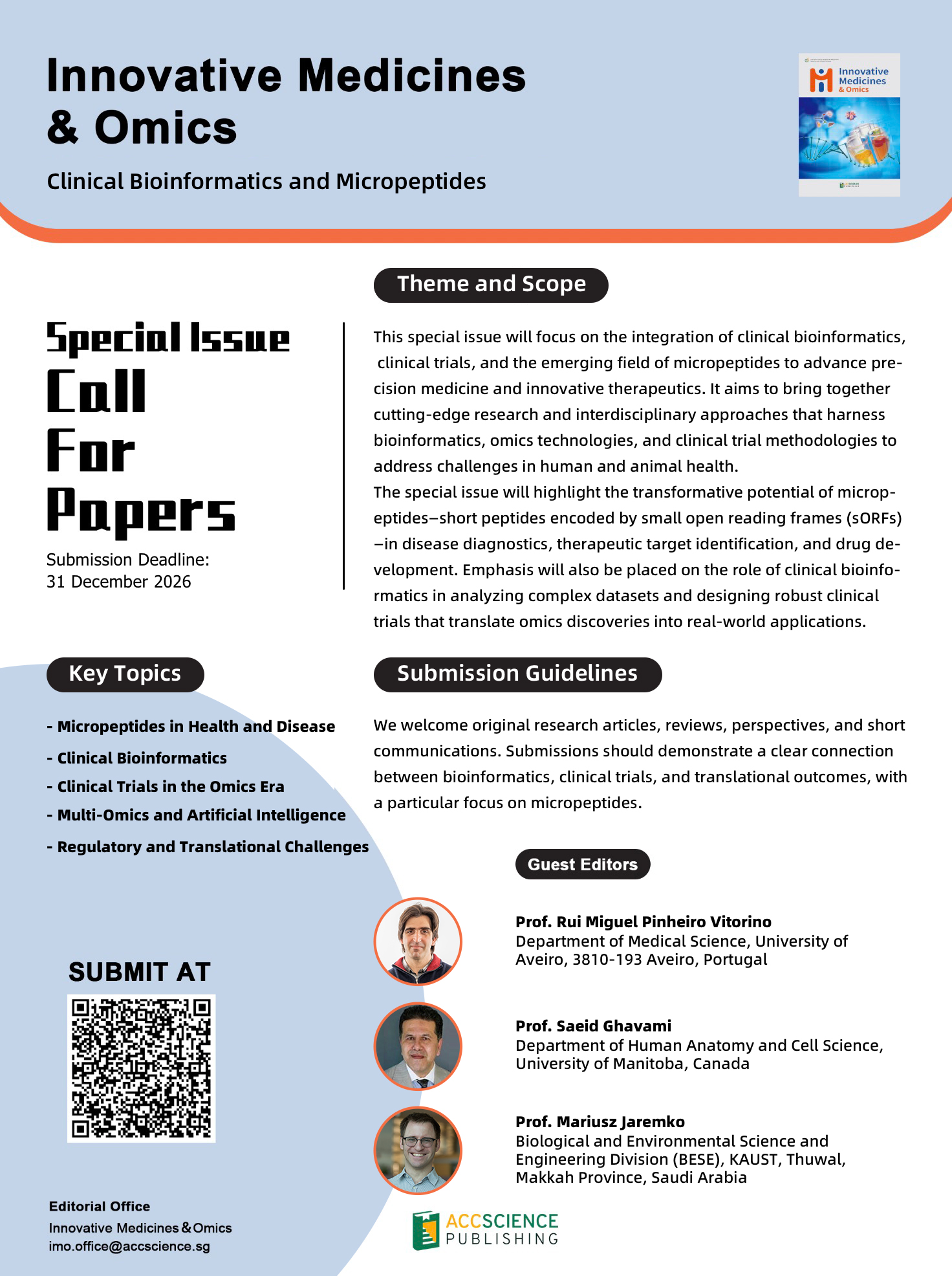
This special issue will focus on the integration of clinical bioinformatics, clinical trials, and the emerging field of micropeptides to advance precision medicine and innovative therapeutics. It aims to bring together cutting-edge research and interdisciplinary approaches that harness bioinformatics, omics technologies, and clinical trial methodologies to address challenges in human and animal health.
The special issue will highlight the transformative potential of micropeptides—short peptides encoded by small open reading frames (sORFs)—in disease diagnostics, therapeutic target identification, and drug development. Emphasis will also be placed on the role of clinical bioinformatics in analyzing complex datasets and designing robust clinical trials that translate omics discoveries into real-world applications.
Key Topics
Submissions are invited on the following themes:
Micropeptides in Health and Disease
- Discovery and functional characterization of micropeptides in human and animal health.
- Micropeptide roles in cancer, metabolic diseases, and neurological disorders.
- Development of micropeptide-based therapeutics and drug delivery systems.
Clinical Bioinformatics
- Integration of multi-omics data for biomarker discovery and patient stratification.
- Bioinformatics pipelines and tools for analyzing micropeptide datasets.
- Computational modeling of micropeptide interactions and pathways.
- Ethical considerations in bioinformatics for clinical trials.
Clinical Trials in the Omics Era
- Omics-guided design of precision medicine clinical trials.
- Innovative trial methodologies incorporating biomarkers and omics data.
- Real-world data applications and adaptive trial designs.
- Case studies: Translating omics discoveries, including micropeptides, into clinical interventions.
Multi-Omics and Artificial Intelligence
- AI-driven approaches for identifying therapeutic micropeptides.
- Systems biology insights from integrating genomics, proteomics, and micropeptide data.
- Machine learning in predicting micropeptide functionality and disease relevance.
Regulatory and Translational Challenges
- Navigating regulatory pathways for micropeptide-based therapies.
- Harmonizing bioinformatics standards across clinical research.
- Translational challenges in adopting omics findings into clinical practice.
Submission Guidelines
We welcome original research articles, reviews, perspectives, and short communications. Submissions should demonstrate a clear connection between bioinformatics, clinical trials, and translational outcomes, with a particular focus on micropeptides.




